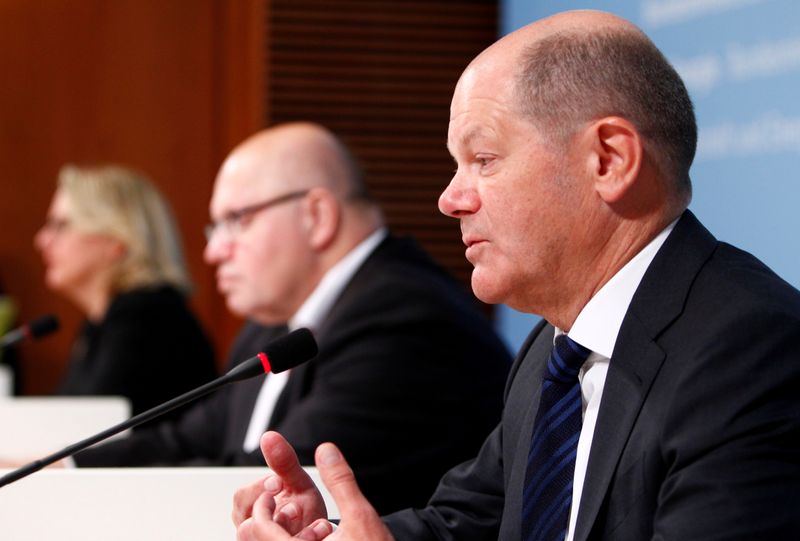By Michael Nienaber
BERLIN (Reuters) - Germany may introduce tax breaks to cushion the effect of the coronavirus should the epidemic worsen, Economy Minister Peter Altmaier said on Thursday, adding that the impact so far on Europe's largest economy was fairly limited.
Germany has reported 27 cases of the virus, most of whom have already been discharged from hospital. China, where the outbreak started, is one of Germany's biggest export markets and German companies also depend on Chinese supply chains.
On Wednesday, Health Minister Jens Spahn said it was already impossible to trace all paths of infection in Germany, and he urged regional authorities, hospitals and employers to review their pandemic planning.
Altmaier said that the government was discussing additional steps should the virus spread more rapidly and cause significant economic damage.
"It's not about fiscal stimulus programmes in the classic sense, which would only be a flash in the pan," Altmaier said.
Chancellor Angela Merkel's conservatives have long resisted calls at home and abroad to spend more, despite record-low borrowing costs and an economy that is close to recession.
Altmaier said the plans under discussion were about "pulling forward already agreed measures, if needed, and we're looking at stimulating the economy by changing the conditions for corporate taxation".
He said one idea was to give companies more leeway to make investments in the private sector.
Germany's coalition parties agreed last year to abolish the 'soli' - a tax surcharge introduced in 1991 to help finance the cost of its reunification - for more than 90 percent of taxpayers from January 2021.
A month ago, Finance Minister Olaf Scholz suggested pulling that forward to July, a step that would cost the state around 5 billion euros ($5.43 billion).
DIVISIONS OVER DEBT
Merkel's conservatives earlier on Thursday dismissed a proposal by Scholz - a member of the centre-left Social Democrats (SPD) that are the junior partners in her coalition government - to ease strict federal debt limit rules to boost spending on roads and schools.
Weekly paper Die Zeit reported on Wednesday that Scholz planned to temporarily suspend the country's debt brake to achieve this.
Changing the constitutionally enshrined debt brake rules would require approval by a two-thirds majority in parliament.
Eckhardt Rehberg, chief budget lawmaker of Merkel's Christian Democratic Union (CDU), told Deutschlandfunk radio he expected his parliamentary group to block any such proposal.
"The conservatives won't support this. Scholz is throwing down the gauntlet," a parliamentary source added.
A finance ministry spokeswoman on Wednesday said Scholz was expected to present his ideas this spring.
He is hoping to become the SPD candidate for chancellor in the 2021 federal election. His debt brake proposal is supported by the opposition Greens and The Left.
SPD parliamentary deputy leader Achim Post called on Armin Laschet, a centrist candidate running for the leadership of Merkel's conservatives, to come up with his own ideas on the issue.
